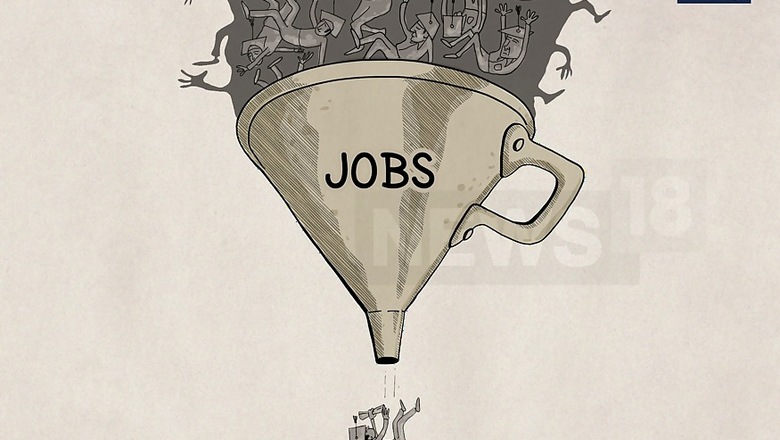
views
The All India Council for Technical Education (AICTE), government regulatory body for technical education, has recently completed its approval process for the academic year 2018-19.
In a conversation with News18, AICTE Chairman Anil Saharabudhe elucidated on upcoming sectors, that maybe large attractor of jobs, the Council’s future plans on making courses job oriented and more.
Edited excerpts:
With IT losing out on recruitments, what can be India’s next big job-provider?
There is likelihood of no mass recruiters in India in the coming times. We will see small scale industries, medium enterprises, startups and individual entrepreneurs providing jobs. Large scale industries are stagnating and very few jobs will be generated from there in the recent future.
The reason is a lot of automation is happening. The automobile industry, for example, has high scale of automation. Jobs will be there but the numbers will be skewed. The jobs will now be generated outside, in the ancillary units of the automotive industry, for example. Also, student startups which start from colleges can provide jobs. Slowly if that grows bigger then they can employ more people, say 2000.
Why is there a sudden spike in colleges offering pharmacy?
As far as pharmacy is concerned since almost all the seats in that stream were getting filled, people thought that there is a big demand in that sector and therefore they applied for more colleges this year. However, according to my analysis, this will also have the same fate as management and engineering within the next one or two. It's a matter of two years.
There is a conscious effort to reduce the number of engineering colleges in India.
We have asked all states to come up with their own perspective plan. The plan will contain sectors that they think are going to be more in demand and based on that they should tell us whether new colleges should be started in those subjects or not. We received these plans from Telangana, Andhra Pradesh, Chhattisgarh, Haryana, Rajasthan and Himachal Pradesh. All of them had some opinion about not starting engineering colleges.
We are also going to have a national perspective plan on what would be the areas in demand in the next 10 or 20 years.
According to inputs we have, Electric Automotives will be the future.
How do you plan to curb brain drain?
Yes, there are students who are applying abroad for specialised courses but we are trying to identify those disciplines and come up with our own colleges in India. We are also trying to attract foreign students to come in study in India in a far lesser price. Asia and Middle East students will find India as a much better, cheaper country to study in. We are doing this by two methods, one, by inculcating those courses through division of curriculum and two, by training teachers in those disciplines which are soon going to become major attractions for students.
Do you think the time has come to include a compulsory skill training component across curricula?
No knowledge is complete without theoretical base as well as knowledge in terms of practical use. Many times what happens is someone may be skilled but he may not know why that is happening. Also in other cases, someone may have theoretical knowledge but may not know how to apply it. So a person can only become employable and use the best of his curriculum by having both practical and theoretical knowledge. Curriculum should have enough scope for practical skills as well.
What needs to be done is there needs to be a skill component introduced everywhere even at the bachelors’ and masters’ level.
What are your plans to make courses more student-friendly and job oriented?
We are working in a big way on student induction programme. We have made it mandatory for all colleges to conduct this programme during the first 3 weeks. All students will interact with the faculty members.
There will be a variety of activities like games, sports, yoga, discussions, watching a movie, expert lecturer and also different art forms like maybe painting, music or dance. Any student who is interested in these things can do that in short modules so that holistic development of the student is brought about. You get sensitized to other students. Someone from rural areas may find difficulty with an urban English medium fellow. Someone from Hindi, Marathi, Telugu medium will find himself totally out of place, so it’s an effort to make them friends. They will also start helping each other.
Also, with teachers being there with them for the full three weeks, he/she will become natural philosopher, guide and friend. Students will then naturally address their problems to the teachers in a friendly way.
Otherwise there is only agitation now. Post implementation of this programme, they will not do patharbaji.
The confidence they derive from this will also help them during job interviews.
(The story is part of News18 series #onthejob. The next part will focus on how JEE exam patterns are being changed to end rote learning)




















Comments
0 comment